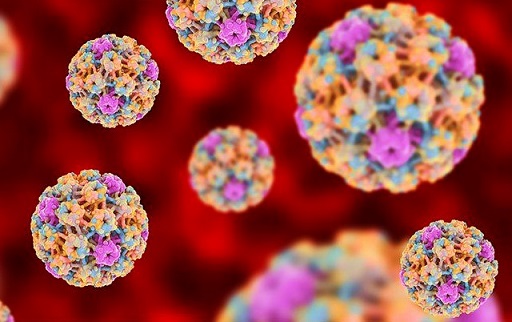Nikhil Prasad Fact checked by:Thailand Medical News Team Sep 28, 2025 4 months, 2 weeks, 2 days, 1 hour, 50 minutes ago
Medical News: A Hidden Connection Between Viruses and Rare Cancer
Thymic cancer is one of the rarest and least understood cancers, yet it is known for its severity and poor survival outcomes. A team of researchers from Fu Jen Catholic University, Shin-Kong Wu Ho-Su Memorial Hospital, National Taiwan University, Academia Sinica, and Cardinal Tien Hospital in Taiwan has now found a connection between human papillomavirus (HPV) and the development of this uncommon cancer. HPV is already notorious for causing cervical cancer and other cancers in the throat and reproductive system, but its link to thymic tumors has never been studied in detail. This
Medical News report highlights how the virus might play a surprising role in cancer types beyond what doctors previously expected.
 HPV Link to Rare Thymic Cancer Sparks Fresh Concern
Large Community Study in Taiwan
HPV Link to Rare Thymic Cancer Sparks Fresh Concern
Large Community Study in Taiwan
The study followed over 10,500 Taiwanese women who were first enrolled between 1991 and 1992. Cervical cell samples collected at the time were tested for 39 types of HPV, and participants were tracked through Taiwan’s National Cancer Registry until 2020. During this follow-up, cases of newly diagnosed thymic cancer were carefully recorded. Overall, about 15.5 percent of the women were HPV-positive at the start. The researchers found that women infected with HPV showed a higher risk of developing thymic cancer, though the overall number of cases was very small because the disease itself is so rare.
Specific HPV Types and Higher Risk
While the general link between HPV and thymic cancer was modest, a striking finding emerged when researchers analyzed individual HPV types. Women infected with HPV types classified by the International Agency for Research on Cancer as “group 3” showed an extremely high relative risk. These types, such as HPV 6 and 11, are usually thought of as “low risk” because they cause benign warts rather than cancer. Yet in this study, infections with these types were associated with a hazard ratio of 11.82, meaning the risk of thymic cancer was far greater compared to non-infected individuals.
Rare but Important Observations
Only 10 participants in the entire cohort eventually developed thymic cancer, and just three of them tested positive for HPV. However, two of those HPV-positive patients had multiple infections, including HPV 11, which belongs to the “low risk” group. Some patients developed cancer more than 20 years after the initial infection. The researchers suggested that HPV might trigger cancer development even if the virus later disappears, a concept known as the “hit and run” effect.
Why These Findings Matter
This research opens new questions about how viruses can influence cancers outside their usual sites. If HPV can contribute to thymic cancer, it may also play roles in other rare cancers not yet fully understood. The findings also highlight that so-called low-risk HPV strains might not always be harmless. However, the study has limits, inclu
ding the very small number of thymic cancer cases and the fact that HPV was not tested directly in thymic tissue.
Conclusion
The Taiwanese study suggests that HPV infection could be linked to thymic cancer, particularly in cases involving HPV types traditionally labeled as low risk. While the overall evidence is still limited, it points to the need for more large-scale international research and deeper molecular studies. Understanding these connections may change how doctors think about viral infections and their long-term role in cancer development.
The study findings were published in the peer reviewed journal: Cancer Management and Research.
https://www.tandfonline.com/doi/full/10.2147/CMAR.S537425
For the latest on HPV, keep on logging to Thailand
Medical News.
Read Also:
https://www.thailandmedical.news/news/covid-19-increases-risk-of-hpv-linked-cancers
https://www.thailandmedical.news/news/high-risk-hpv-and-its-impact-on-immune-evasion-and-cancer-development
https://www.thailandmedical.news/news/natural-compounds-as-hope-for-reducing-hpv-related-cancers
